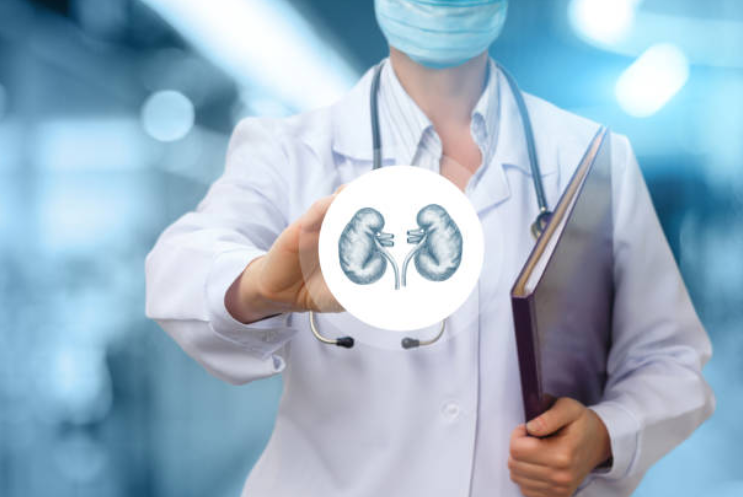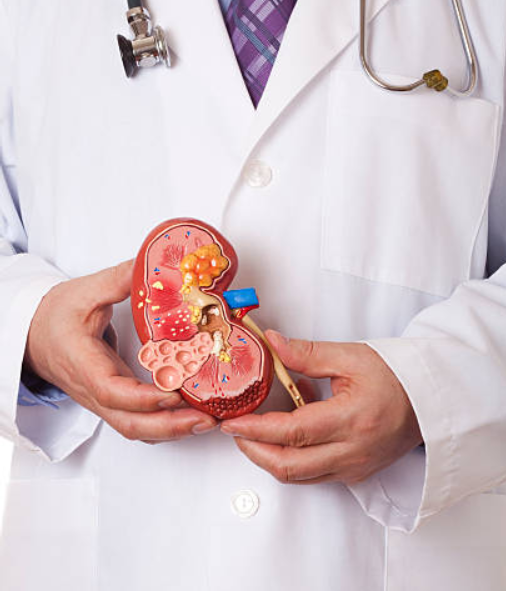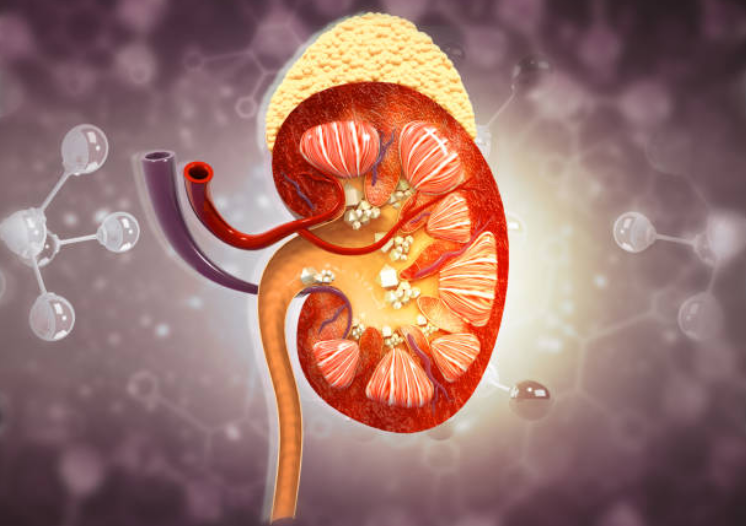What Are Kidney Stones?
Kidney stones are small, hard lumps that form inside your kidneys. They’re made of minerals and salts from your urine. Some stones are tiny and pass without pain, but others can be very painful when they move through your urinary system. That’s when kidney stone pain relief treatment becomes essential.
Why Do Kidney Stones Form?
Kidney stones form when your urine has too much of certain substances like calcium or uric acid and not enough water to flush them out. These substances stick together and form stones, often requiring treatment for kidney stones to manage symptoms and prevent complications.
Common Reasons People Get Kidney Stones:
Several factors increase the risk of developing kidney stones. Understanding these causes can help with effective kidney stone treatment and long-term prevention.

1. Inadequate Water Intake
Not drinking enough water leads to concentrated urine, which makes it easier for minerals to crystallize and form stones.
2. High Salt and Meat Consumption
Diets high in sodium or animal protein can raise calcium and uric acid levels in the urine two key contributors to kidney stones.
3. Medical Conditions
Overactive parathyroid glands: Can cause excess calcium in the blood and urine.
Frequent urinary tract infections (UTIs): Can lead to struvite stones.
Digestive disorders: Conditions like Crohn’s disease or chronic diarrhea can affect nutrient absorption and increase stone risk.
4. Genetic Factors
Some people inherit a tendency to form kidney stones, especially if there’s a family history.
5. Certain Medications
Diuretics, calcium-based antacids, and some antibiotics may contribute to kidney stone formation.
6. Family History
If kidney stones run in your family, your chances of developing them are higher.
Signs You Might Need Kidney Stone Treatment
Kidney stones can cause different symptoms depending on their size and location. Small stones might not cause any problems, but bigger ones can be very painful and may require kidney stone pain relief treatment or even kidney stone removal surgery.
Common Symptoms:
Severe pain typically begins in the back or side and may radiate toward the lower abdomen or groin area.
- Pain when peeing: It might burn or feel uncomfortable.
- Feeling like you need to pee often: Even if little comes out.
- Blood in your urine: Your pee might look pink, red, or brown.
- Nausea or Vomiting: Pain can make you feel sick.
- Fever and chills: If you also have an infection, you might feel feverish.
If you have strong pain or any of these symptoms, see a doctor right away for kidney stone treatment.

How Are Kidney Stones Treated?
Treatment for kidney stones depends on how big the stone is and how much pain it’s causing. Some stones pass on their own, while others need medical help.
If the Stone Is Small
- Drink lots of water: This helps push the stone out.
- Medicine to relax your urinary tract: This can help the stone pass more easily.
- Catch the stone: Your doctor may ask you to pee through a strainer to collect the stone and test it.
These steps are part of conservative kidney stone pain relief treatment.
If the Stone Is Big or Causing Problems
- Shock wave treatment (ESWL): Breaks the stone into smaller pieces using sound waves.
- Ureteroscopy: A thin tube goes into your bladder and ureter to remove or break the stone.
- Open surgery: Rarely needed, only if other treatments don’t work.

PCNL, a procedure done through a small incision in the back, is commonly used to treat large kidney stones. These procedures fall under kidney stone surgery or kidney stone removal surgery, depending on the method used. Your doctor will decide the right treatment for your kidney stone based on your condition.
How to Prevent Kidney Stones
Kidney stones often come back, so it’s important to take steps to prevent them. Prevention is a key part of long-term kidney stone treatment.
Easy Tips to Avoid Kidney Stones:
- Stay well-hydrated by drinking 8 to 10 glasses of water daily.
- Avoid salty snacks and processed foods.
- Limit your intake of meat, particularly red meat.
- Limit foods high in oxalate like spinach, beets, nuts, and chocolate.
- Eat citrus fruits like lemons and oranges can help prevent stones.
- Treat health problems like infections or digestive issues.
- Follow your doctor’s advice or prescribed medications.
Regular check-ups and early treatment for kidney stones can help keep your kidneys healthy and reduce the need for kidney stone surgery.
Final Thoughts
Kidney stones can be painful, but they’re treatable. Whether you need kidney stone pain relief treatment, kidney stone removal surgery, or just want to prevent them from coming back, there are effective options available. Talk to your urology doctor about the best kidney stone treatment for your needs.

